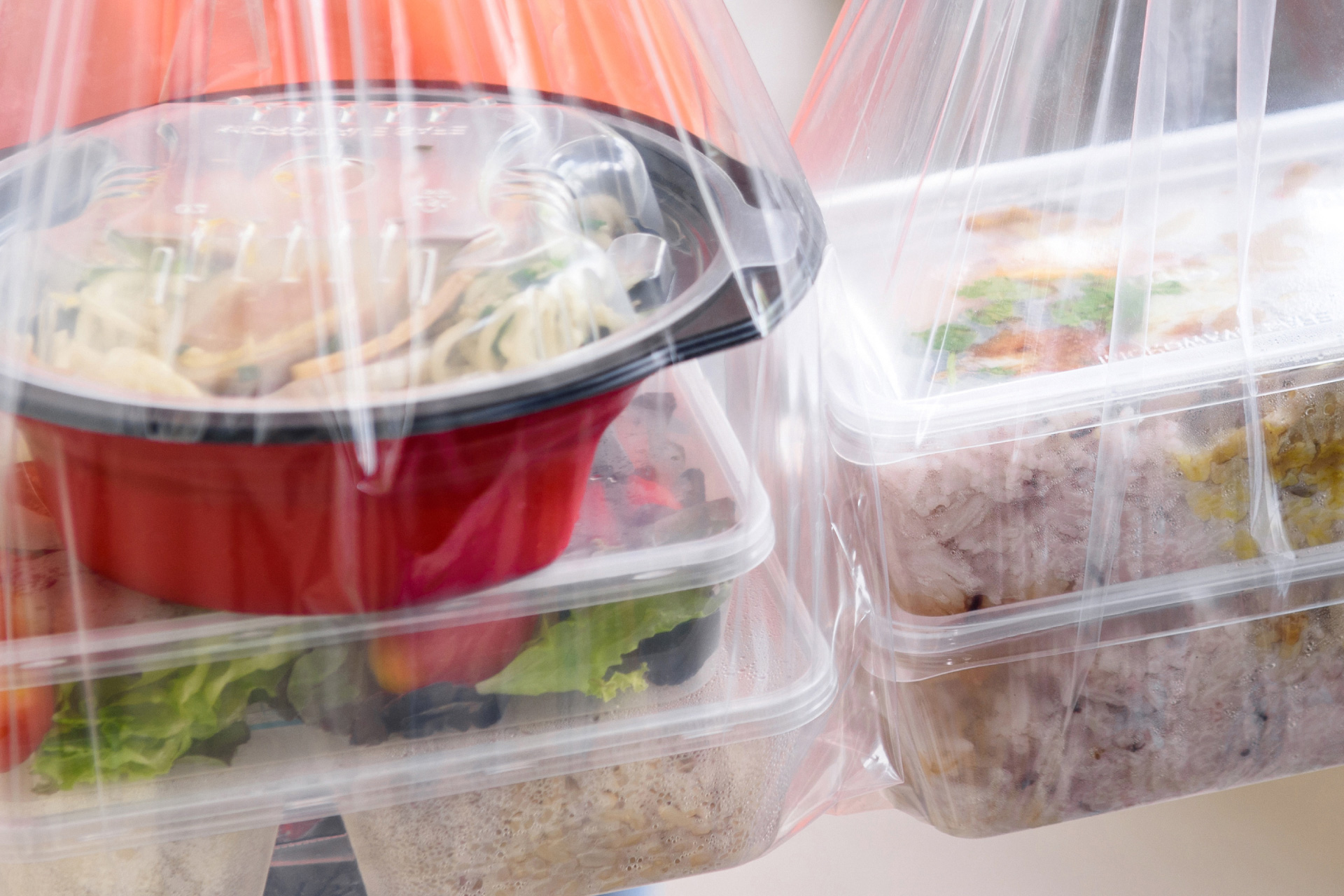Now on the home “run” of the programme 🙂
I am curious – How many are storing food in plastic containers?
How many are using clingfilm to wrap their lunch in and aluminium foil to bake items in the oven?
How many have switched to glass jars or simply store food between 2 ceramic plates/bowls?
We all have plastic in our lives, it’s everywhere. In the air we breathe, food we eat, ocean we swim in, soil under our feet, water we drink, toys our children play with, and even the mattresses we sleep on.
We have all heard that plastic is toxic. It has been proven to cause cancer. Plastic is an endocrine disruptor that negatively affects our hormonal system. These chemicals mimic our own delicate hormones, throwing them into disarray, which can result in such things as unhealthy oestrogen dominance, unexplained fatigue, acne, insomnia, allergies, memory issues, mood swings, accelerated aging, and hair loss. Plastic does not break down quickly in our body therefore easily stored in our fat cells. With more toxins in our cells, the greater the chance of illness and disease.
Do you know it can take up to a thousand years for a single plastic bag to deteriorate, which then remains toxic even after it breaks down?
Plastic particles will leach into food and drink and are also absorbed through skin and lungs. We can’t see or feel the plastic particles in our drinking water or in our food, but they’re quietly wreaking havoc.
Over the past years, scientists have struggled to find answers to mysteries such as early puberty, ADD & ADHD in so many children, obesity, and the increased rates of cancer. Although multiple factors play a role in all of these, one recurrent theme is the constant dose of endocrine disruptors in our lives. Sadly, plastic is routinely found in newborn baby’s blood and mother’s breast milk.
The 5 worst culprits (OBESOGENS) are:
BPA Plastics (or BPF, BPS and any other plastic replacement)
Phthalates
Atrazine
Organotins
Perfluorooctanoic acid (PFOA)
The chemicals here are abundant in foods, water, beauty products, cleaning products and even our clothing!
It is an interesting fact that plasticisers are over 10,000 to 1,000,000 times higher in our bodies than any other toxins that have been found in EPA studies. Unfortunately once in the body, these plastics do enormous damage.
Exposure to plasticisers can come from skin absorption of cosmetics, body lotions, hair gels, shampoos, and deodorants. You can ingest them from water, PVC (water) pipes, detergents, and foods. We also can inhale them from airborne adhesives and glues, building materials, school/business supplies, furnishings, auto interiors, solvents, plastics, lubricants, insect repellants, vinyl flooring, carpet tiles, vinyl wallpaper, body toiletries, artificial leather, adhesives, dyes, and toys. Don’t forget that plastics coat every wire in the electrical systems of our homes, offices, appliances and computers. As the wires heat, the plastic coating outgases into the air.
So as you can see, plastics are everywhere and, to be quite honest, they are difficult to avoid.
The best we can do is to be certain we are doing everything we can to effectively and efficiently eliminate any build-up of plastics (phthalates) in the body.
Although France has banned plastic packaging containing BPA, the replacement form is still not considered toxic enough to remove from production so BE AWARE! It has not been banned in the UK.
https://www.packaginglaw.com/…/what-are-requirements…
https://www.compliancegate.com/bisphenol-a-regulations…/
Also research, by a team at Toulouse University revealed that BPS persists longer in the body and at much higher concentrations than BPA. The scientists involved in the study said their findings suggest that replacing BPA with BPS will likely lead to ‘increased internal exposure to an endocrine-active compound that would be of concern for human health’.
Filter water (avoid plastic bottles)
Switch to toxin free beauty and hygiene products
Use lemon juice and bicarbonate to clean at home or buy the natural products
Air your home as often as possible
Heating plastics in the microwave, or placing hot foods in them, can dramatically increase the amount of chemicals that leach into your foods (same as heat on water bottles). Similarly, oily and acidic foods (any kind of fat, tomatoes, vinegar based foods) can also increase migration, so avoid putting oily foods like soups into plastics.
Heat causes the “bisphenol” to leach into food or water. Use glass or stainless steel for water to prevent absorbing these oestrogenic particles.
Storing fatty or acidic food (such as tomatoes) in plastic will increase the migration of chemicals out of plastics into food.
Try to avoid prepackaged food during the programme (and beyond) as these often come in containers made with obesogens and consider how you store your food. Keep those glass jars and reuse them to store other items.
Having 2 or more servings of Brassica or cruciferous vegetables a day revs up the detoxification of plastics. These include cabbage, broccoli, brussels sprouts, cauliflower, radishes, mizuna, watercress, arugula, turnips, collard greens, kale, rutabaga, and more.
